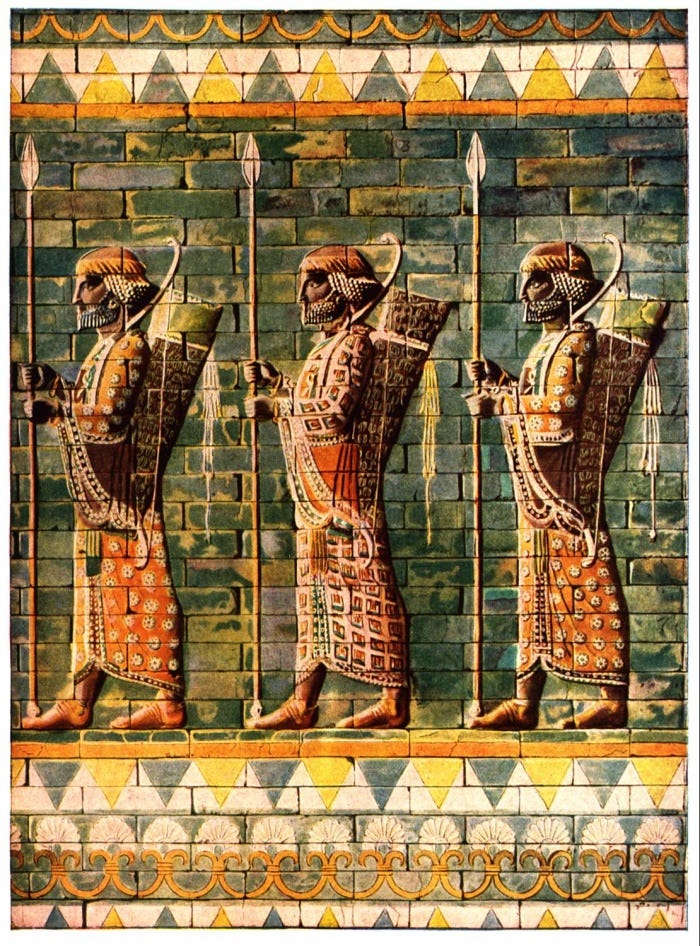My doing history in light of my remembrance of the Persian Empire
In my final year of schooling in England, my history teacher, a Mr. Norris at King Henry VIII Grammar School in Coventry, discovered my Middle Eastern background (did he or even I know I was half-Kurdish or was it simply that he knew my father’s family came from that general area of the world?) and he gave me a book on Persepolis and the Persian Empire to read. I suppose he wanted to help me to connect with my family heritage.
But, in those days, my love was with the Greeks, the sworn enemies of the Persians and their imperialism. I was gripped by the accounts of the Spartans at the Hot Gates (Thermopylae) and regarded the Persians with great disdain. To me, the Persians represented tyranny and an effete culture (not that I could have enunciated that latter idea in those terms then). The Greeks with their love of freedom and amazing culture (though, here the Spartans were an exception—but their remarkable heroism in the Persian Wars was to me, a young teenager, very impressive) were understandable. But the Persians seemed to be foreign to all that was precious in the West. It seems to me now, looking back, that my father’s desire to blend into the West (a major motif of his life) was also unconsciously shaping my likes and dislikes. I liked the Ancient Greeks but not their Ancient Persian contemporaries.
Fast forward a decade to the years immediately following my becoming a Christian. As I read the Bible, I came across a very different view of the Persians. Here they were the liberators of the Jews during the time of Esther and then during the time of Ezra and Nehemiah. The Book of Esther records a liberation that is celebrated down to the present day in the feast of Purim. This feast commemorates the providential deliverance of the Jewish people by Esther when Haman, an official of the Achaemenid Empire, was seeking to slay all of the Jews in Persia. And it was Cyrus, the Persian ruler, who enabled the Jews to return to Israel during the days of Ezra and Nehemiah. And were not the Magi from the East probably from Parthian (i.e. Persian) in origin?
What to make of all this then?
Well, this one thing is clear: there is a complexity to history that defies the easy categorization of people into “goodies” and “baddies.” This latter approach to history, which is typical of modern ideological readings of the past is but a childish way to approach history. The τέχνη (and I am using this word in the classical Greek meaning of it as “craft” or “art”) of history is far too fiery to be confined within the straitjackets of modern ideologies—whatever their spatial direction.




